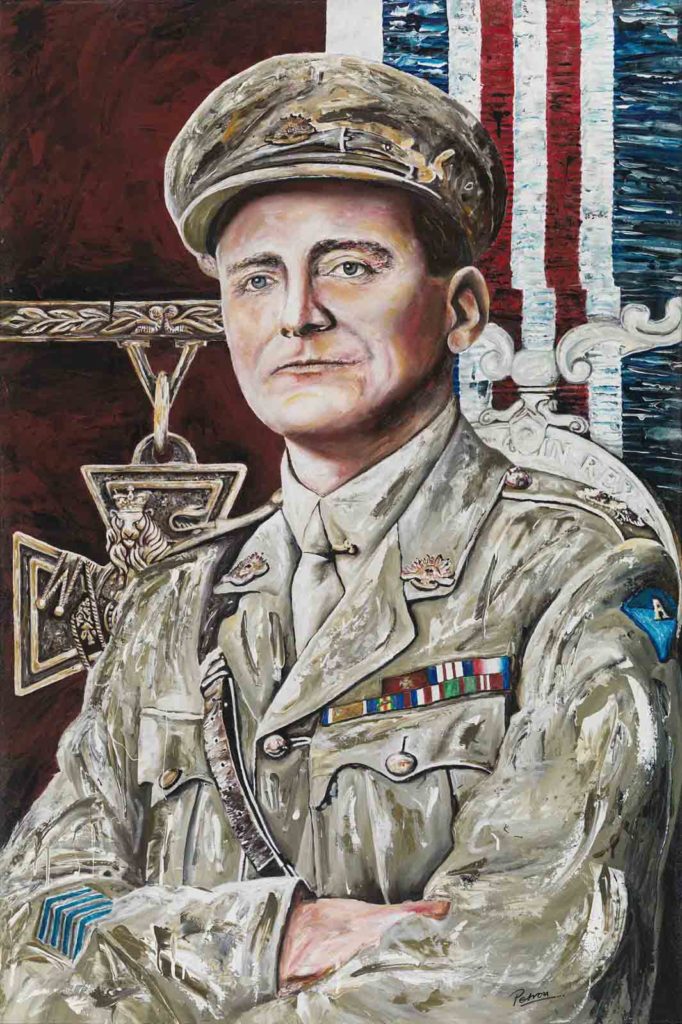Lieutenant Albert Chalmers Borella
Albert Chalmers Borella (1881-1968), soldier and farmer, was born on 7 August 1881 at Borung, Victoria, son of Louis Borella, farmer, and his wife Annie, née Chalmers, both native-born. His mother died when he was 4 and his father remarried. Educated at Borung and Wychitella state schools, he later farmed in the Borung and Echuca districts; he also served for eighteen months with a volunteer infantry regiment, the Victorian Rangers.
On 15 March he enlisted in the Australian Imperial Force as a private and was posted to ‘B’ Company, 26th Battalion, on 24 May. After training in Egypt his unit landed at Gallipoli on 12 September and Borella, who was promoted corporal later that month, served there until November.
The 26th Battalion sailed for the Western Front in March 1916; Borella was wounded in the battle of Pozières Heights on 29 July and was evacuated for four months. He was promoted sergeant in January 1917, and in March was awarded the Military Medal for conspicuous bravery at Malt Trench, Warlencourt. Commissioned second lieutenant on 7 April, he was mentioned in dispatches soon afterwards and in August was sent to England for officer training and promoted lieutenant. In the early months of 1918 the 26th Battalion held the line at Dernancourt, where Borella was mainly engaged in patrolling and raids. He fought at Morlancourt and Hamel and on 17 July, for ‘most conspicuous bravery in attack’ at Villers-Bretonneux, was awarded the Victoria Cross. While leading his platoon in an assault on an enemy support-trench, he noticed a machine-gun firing through the Australian barrage; he ran out ahead of his men into the barrage, shot the gunners with his revolver and captured the gun. He then led a small party against the strongly held trench, bombed two dug-outs and took thirty prisoners. Only weeks after this incident he was invalided to Australia owing to wounds and illness.
In 1920-39 Borella farmed on a soldier-settlement block near Hamilton, Victoria. He was National Party candidate for Dundas in the 1924 Legislative Assembly election and was only narrowly defeated. He married Elsie Jane Love at Wesley Church, Hamilton, on 16 August 1928; from September 1939, when he changed his name by deed-poll, he and his family used the surname Chalmers-Borella. On the outbreak of World War II Borella was appointed lieutenant in the 12th Australian Garrison Battalion with which he served until 1941 when he was attached to the Prisoner of War Group at Rushworth. Promoted captain on 1 September 1942, he served with the 51st Garrison Company at Myrtleford until discharged in 1945. He then moved to Albury, New South Wales, joined the Commonwealth Department of Supply and Shipping, and was an inspector of dangerous cargoes until his retirement in 1956. Survived by his wife and two of his four sons, he died on 7 February 1968 and was buried with full military honours in the Presbyterian cemetery.
‘A big tough-looking bloke, the image we conjure up of the digger’, Borella was yet a humane, quietly spoken and unostentatious man, ever ready to assist a worthy cause. Streets in Albury and Canberra are named after him.


